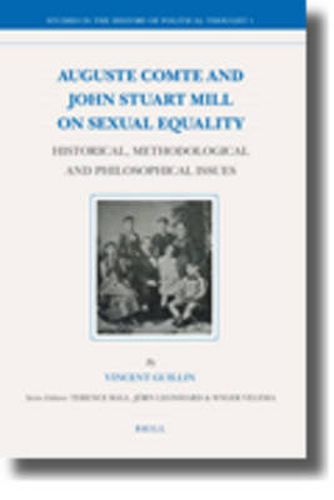Readings Newsletter
Become a Readings Member to make your shopping experience even easier.
Sign in or sign up for free!
You’re not far away from qualifying for FREE standard shipping within Australia
You’ve qualified for FREE standard shipping within Australia
The cart is loading…






Vincent Guillin uses the issue of sexual equality as a prism through which to examine important differences - epistemological, methodological and theoretical - between Auguste Comte and John Stuart Mill. He succeeds in showing how their differing conceptions of science and human nature influence and affect their respective approaches to philosophy and to the analysis of female (in)equality in particular. Guillin shines a bright searchlight into long-neglected aspects of both men’s thinking - for example, Mill’s proposal to construct an ‘ethology’, or science of character-formation, and Comte’s seemingly bizarre interest in phrenology - and the ways in which these shaped their views of women’s intellectual and political capacities. Guillin’s wide-ranging study examines both men’s major and minor works, their correspondence with one another, and the reasons for the final acrimonious break between two of the nineteenth century’s most original and important thinkers.
$9.00 standard shipping within Australia
FREE standard shipping within Australia for orders over $100.00
Express & International shipping calculated at checkout
Vincent Guillin uses the issue of sexual equality as a prism through which to examine important differences - epistemological, methodological and theoretical - between Auguste Comte and John Stuart Mill. He succeeds in showing how their differing conceptions of science and human nature influence and affect their respective approaches to philosophy and to the analysis of female (in)equality in particular. Guillin shines a bright searchlight into long-neglected aspects of both men’s thinking - for example, Mill’s proposal to construct an ‘ethology’, or science of character-formation, and Comte’s seemingly bizarre interest in phrenology - and the ways in which these shaped their views of women’s intellectual and political capacities. Guillin’s wide-ranging study examines both men’s major and minor works, their correspondence with one another, and the reasons for the final acrimonious break between two of the nineteenth century’s most original and important thinkers.